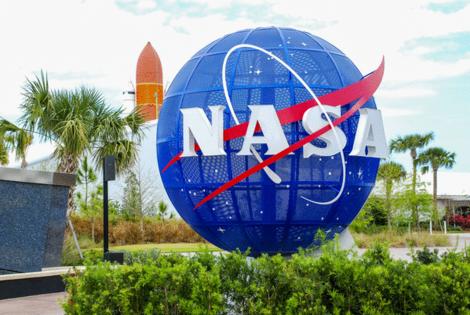UCF provost Trump taps for NASA CFO is keen on Mars, wary of China
Published in News & Features
A University of Central Florida faculty member President Trump nominated for NASA chief financial officer sees the moon as a stepping stone to Mars but warns the U.S. needs to fix its space game if it’s going to outplay China.
Trump tapped Greg Autry on Monday for the post. He joined the university in 2024 as associate provost for Space Commercialization and Strategy.
“I have been honored to help move UCF’s incredible space enterprise forward, and I hope to return after my service at NASA,” Autry said in a news release. “Our space agency has a long history of excellence in financial management, and I am looking forward to joining the incredible team at NASA.”
Autry worked with the first Trump administration as part of the White House transition team for NASA. In 2016, he helped lay out NASA’s plans to return to the moon through its Artemis program.
In January during SpaceCom, the commercial space conference in Orlando, Autry discussed his 2024 book, “Red Moon Rising: How America Will Beat China on the Final Frontier,” which he authored along with Peter Navarro, current Trump senior adviser for trade and manufacturing.
“China is moving forward rapidly, and we, for some reason, can’t even get people on the moon in eight years,” he said. “We assumed that that could be done faster than John F. Kennedy was able to do it back when we didn’t know what we’re doing. But it turns out it can’t.
“So we’ve got to be honest about the fact that we’re not executing on time and on a program the way that the Chinese are.” China has plans to land astronauts on the moon in 2030 or earlier.
He said from a science and engineering perspective, he’s glad they’re a competitor — it gives Americans something to hold themselves up to.
While Autry has only been at UCF for a year, the school has dubbed him its “space czar” as he works within the College of Business to help establish executive and MBA programs. It’s a position he would have to give up if confirmed for the NASA post.
The CFO post is one of four agency positions nominated by the president and requiring Senate confirmation — along with administrator, deputy administrator and inspector general.
Billionaire Jared Isaacman was nominated for administrator, but no confirmation hearing has been put on the Senate calendar yet. Neither has one been scheduled for Autry.
For Autry, the CFO role means overseeing NASA’s financial management and budget. The agency has kept running under a continuing resolution this fiscal year on the 2024 budget of around $25 billion — a 2% cut from 2023.
Of that total, deep-space exploration — including the Artemis moon-to-Mars campaign — has led spending at more than $7.6 billion.
Autry is high on pursuing Mars — something Trump has stumped for along with close adviser Elon Musk.
He said it was clear Mars was a goal in Trump’s Space Policy Directive-1 in 2017, and to a lesser degree under the Obama administration, which initially called for a human on Mars by 2040 though not much time was spent on it.
“They had what we call the squid chart, which was basically a piece of mystery meat about how we work — we’re going to theoretically put humans on Mars,” Autry said. “NASA has never taken the task seriously, and I’m glad that we’re going to go there.”
He does think focusing on moon efforts with commercial and international partners, though, doesn’t have to be separate from those targeting Mars.
“There’s a lot of complementary technology and capabilities that are developed for both those goals,” Autry said. “You don’t need to build an airplane to go to Miami and a different airplane to go to New York. So I’m hoping that we’ll find that we can all get along.”
One of the biggest financial dilemmas facing NASA is how much it has spent on the Artemis program. The Space Launch System rocket cost taxpayers $23.8 billion since its conception in 2011, according to data from The Planetary Society.
The Orion spacecraft, which began under the Constellation program during the George W. Bush administration in 2006, cost another $20.4 billion while ground infrastructure tacked on $5.7 billion.
By 2022, the total program had cost nearly $50 billion and continues to grow with prep toward next year’s crewed Artemis II mission to fly around the moon. That’s followed by a proposed 2027 Artemis III mission to return humans to the lunar surface for the first time since Apollo 17 in 1972. Some experts are skeptical of that time frame.
Still, the moon is a gateway to Mars, he said.
“It’s a question of cultural and economic relevance, and if the United States wants to be relevant in the 21st century, then they’ve got to participate in 21st-century activities and be the best at them,” Autry said.
_____
©2025 Orlando Sentinel. Visit orlandosentinel.com. Distributed by Tribune Content Agency, LLC.







Comments